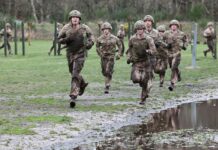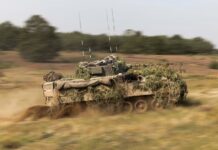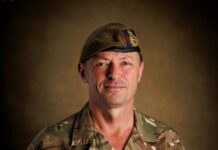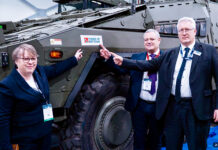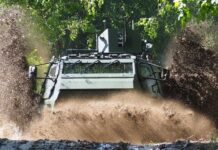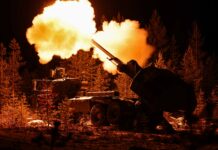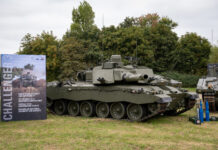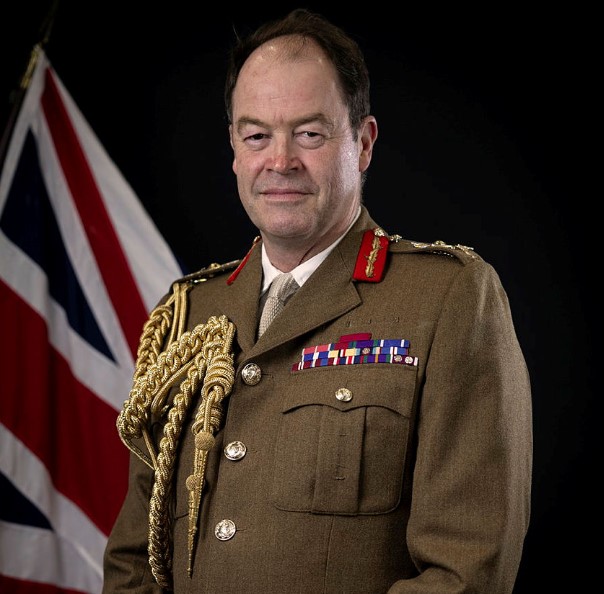
IAV 2024: British Army chief argues for UK defence establishment to adopt a ‘pre-war’ footing in the face of Russian aggression
Peter Felstead
The chief of the British Army has argued that the United Kingdom needs to put its forces – and indeed its society – on a ‘pre-war footing’ in the face of Russian aggression.
Speaking at the Defence iQ International Armoured Vehicles (IAV) conference at Twickenham Stadium, south London, on 24 January 2024, Chief of the General Staff (CGS) General Sir Patrick Sanders warned of the existential threat that Russian belligerence, most obviously demonstrated by its February 2022 invasion of Ukraine, poses to the West’s democratic construct.
“At [the Royal United Services Institute] in 2022 I talked about a 1937 moment and the need to mobilise,” said the general. “Not everyone agreed. I launched the British Army’s Operation Mobilise. It would be our main effort, underwriting the priority to support Ukraine. At [the] DSEI [defence exhibition in London] last summer, I said that we should think of ourselves now as being a pre-war rather than a post-war generation. And last week the Secretary of State for Defense described a move from a post-war to a pre-war world, with the need to ready the entire defence ecosystem, with NATO as our preeminent partner. And I could not agree more.
“Ukraine really matters,” said the CGS. “It is the principal pressure point on a fragile world order that our enemies wish to dismantle. And I use that term with care, noting that the definition encompasses those who actively oppose or are hostile to our interests. This war is not merely about the black soil of the Donbass, nor the re-establishment of a Russian empire. It’s about defeating our system and our way of life politically, psychologically and symbolically. How we respond as that pre-war generation will reverberate through history.
“Ukrainian bravery and resilience is buying us time for now. So Ukraine really matters; I can’t overstate it.”
Gen Sanders noted that in Exercise ‘Steadfast Defender 24’ – NATO’s largest exercise since the end of the Cold War, which began on the very day the general spoke at Twickenham – the British Army will deploy 16,000 troops on 11 NATO-facing training events, spacing 10 countries, including 1,000 armoured and protected mobility vehicles.
“This is the largest British Army NATO deployment in Europe since 1984,” he said. “Land power accounts for 80% of the entire UK contribution, evidencing the centrality of the land domain to NATO. In many respects ‘Steadfast Defender’ marks the summit for us of Op Mobilise, embedding a culture of readiness into the fabric of tomorrow’s army.

Speaking of the British Army’s commitment to the NATO Force Model, Gen Sanders said that the British Army’s delivery of forces for multi-domain operations has to be anchored to NATO, with the NATO Force Model providing the “guiding star”.
Referencing NATO’s Article 5, which provides that, if an individual NATO nation is attacked, the rest of the alliance will consider this an attack against the whole and act accordingly, Gen Sanders, said, “For those of you who play poker, Article 5 is our big blind: the minimum stake to play. And as CGS I must deliver the British Army that NATO needs. And I do challenge those who extrapolate our maritime heritage too far, judging that our NATO contribution can be largely limited to the maritime and the air domains. Kaiser Wilhelm’s memorable and gleeful remark that dreadnoughts have no wheels reminds us that the enemy gets a vote. Land will always matter because it’s where people live. You can’t beat NATO from the flanks. And if we want agency in the way our big blind can be spent, we’ve got to be able to incredibly fight and win wars on land.”
The general consequently argued that the UK needs an army “designed to expand rapidly, to enable the first echelon, resource the second echelon, and train and equip the citizen army that must follow.
“Within the next three years,” he said, “it must be credible to talk of a British Army of 120,000, folding in our reserve and strategic reserve. But that’s not enough: our friends in Eastern and Northern Europe, who feel the proximity of the Russian threat, are already acting prudently, laying the foundations for national mobilisation. As the chairman of the NATO Military Committee warned just last week, and as the Swedish government has done over the last few months, preparing Sweden for entry into NATO, taking preparatory steps to enable us to place our societies on a war footing, when needed, are now not merely desirable but essential.
“Ukraine brutally reminds us that, while regular armies start wars, it is citizen armies that finish and win them.”
Gen Sanders noted of the IAV venue at the beginning of his speech that, within five years of its completion in 1909, Twickenham Stadium, the ‘Home of Rugby’, was pressed into use as “a grazing ground for cattle, sheep and horses” after Europe sleepwalked into the First World War.
Having argued for the UK to became fully prepared, if necessary, to be put on a war footing in the face of Russian aggression, he entreated his audience of international army officers and defence industry representatives to “enjoy the conference, swap business cards, makes deals, and ensure that this magnificent venue doesn’t need to raise cattle, sheep or horses again”.



